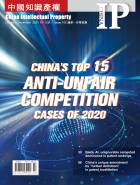
Docket No.: Docket No.: 3434, second instance (终), civil case (民), (2019) Beijing Intellectual Property Court (京73)
Lower Court Docket No.:Lower Court Docket No.: 12921, first instance (初), civil case (民), (2017) Beijing Dongcheng District People's Court (京0101)
The unfair competition acts regulated by the principle provisions of Article 2 of the Anti-Unfair Competition Law shall, first of all, not among the unfair competition acts or infringement acts of typical intellectual property rights explicitly enumerated in the law; second, they should be competitive acts leading to harm to the competitive interests of other operators; and finally, the acts shall be in violation of the principle of honesty and creditability and publicly accepted business ethics, and the damages they cause to others shall be unfair.
STATEMENT OF THE CASE AND FACTS
Plaintiff-Appellant: Guangzhou Daming United Rubber Products Co., Ltd. ("Guangzhou Daming")
Defendant-Appellee: Guinness World Records Limited ("Guinness") and Guinness World Records Consulting (Beijing) Limited ("Guinness Beijing")
After Guangzhou Daming made an application and signed a Certification Agreement with Guinness Beijing, Guinness certified and issued a Guinness World Records certificate to the Plaintiff on December 2, 2013 that confirmed that the "Aoni ultra-thin 001 natural rubber latex condom" manufactured by Guangzhou Daming was the " the thinnest latex condom". Guangzhou Daming paid RMB 4,495.91 as application fee to Guinness for the certification. After obtaining the above world record, Guangzhou Daming paid the trademark licensing fee to Guinness Beijing, and marked the condom products it produced and sold with words like "thinness record holder" and Guinness's trademark. In 2015, Guinness introduced new rules for its certification, stipulating that the world records for the product category would be valid for one year, and declared the above world record of Guangzhou Daming expired. Guangzhou Daming argued that Guinness and Guinness Beijing, with the new rules they had introduced internally, had retroactively declared invalid the Guinness World Record Guangzhou Daming had obtained in 2013, which had violated Article 2 of the Anti-Unfair Competition Law and the principle of honesty and credibility and publicly accepted business ethics, brought direct harm to its legitimate rights and interests, and constituted an act of unfair competition. Guangzhou Daming thus took Guinness and Guinness Beijing to court, requesting that the two Defendants be ordered to stop their unfair competition act as accused in this case and to compensate for the application fees Guangzhou Daming had paid and its economic loss due to reduced sales.
The Beijing Dongcheng District People's Court held in the first instance that Guinness had invalidated the Guinness record of the Plaintiff in question, making it no longer possible for the Plaintiff to use the Guinness brand for publicity or promotion, which did have resulted in a real impairment to the relevant competitive interests of the Plaintiff. However, as to whether it had constituted unfair competition, it was still necessary to examine whether the act was contrary to the principle of honesty and credibility and publicly accepted business ethics, and whether it was unfair. In this case, Guinness had only provided certification services, and the world record itself was not based on consideration purchases but on the relevant facts and evidence. The Plaintiff did not enjoy absolute rights of ownership and other rights provided by law for the world record in question; Guinness shortened the validity of the world records for products to one year and would update the test results annually, which would be closer to the truth and more in the public's interest; The change to Guinness' certification rules was targeting all applicants and would not directly lead to differences in the competitive advantages among different applicants in the market, nor was it intended to capture the competitive interests of the Plaintiff as a specific applicant. Therefore, the act of Guinness involved in this case was not unfair and had not constituted an act of unfair competition. In summary of the above, the Court ruled that the claims of the Plaintiff were rejected.
Guangzhou Daming refused to accept the judgment of the first instance and thus appealed to Beijing Intellectual Property Court. In the second instance, the Beijing Intellectual Property Court held that the Certification Agreement signed by and between Guangzhou Daming and Guinness Beijing stated clearly that Guinness had the right to amend the certification rules at any time, and that changes to the certification rules would inevitably have an impact on the validity of the world records; also, Guangzhou Damien did not have the absolute right as provided by law to the world record in question, and Guinness's amendment of the certification rules was in the public interest, not to harm the competitive interests of Guangzhou Daming. Therefore, the accused act of Guinness had not constituted unfair competition, and the court would not support Guangzhou Daming's reasons for the appeal, which had lacked basis.
ANALYSIS
This is a typical case where the parties have asserted the application of the principle provisions under Article 2 of the Anti-Unfair Competition Law. The court has clarified the three elements of the application of the principle provisions, taken into account the specific circumstances of the case, and made a useful exploration of the criteria and methods for the identification of relevant elements. It has also further deepened the criterion of "causing damages to the interests of other operators and consumers", pointing out that an unfair competition act should first be a competitive act, so that the so-called harmed interests mainly mean competitive interests. As for the prerequisites of violation of the principle of honesty and credibility and publicly accepted business ethics, the court has examined and discussed the judgment criterion of unfairness from the perspectives of legal provisions, the contractual agreement between the parties, and public interests. This case has provided a useful reference for the determination of the breach of the principle of honesty and credibility and publicly accepted business ethics, as well as the trial of similar cases.
|
Copyright © 2003-2018 China Intellectual Property Magazine,All rights Reserved . www.chinaipmagazine.com 京ICP备09051062号 |
|
|



